Concern is growing about the rate at which young people in index countries are leaving farming and seeking alternative livelihoods. Similarly, women smallholder farmers make up almost half of the global agricultural labor force, but their success as commercial farmers is limited by barriers to finance, inputs and extension services as well as constraining land tenure and ownership rights.
None of the 13 global companies reports corporate strategies to address the particular capacity building needs of women and next-generation smallholder farmers. Only five global companies have projects addressing the needs of women smallholder farmers, and seven have projects that focus on the needs of next-generation farmers. In all cases, these projects are small and limited in scope. Of the regional companies, four have corporate strategies in place that focus on women smallholder farmers. In South and Southeast Asia, this is BRAC Seed and Agro Enterprise, in Eastern and Southern Africa, Victoria Seeds takes the lead in aiming to empower women though its operations, and in Western and Central Africa, only AINOMA and Value Seeds have relevant corporate strategies. Another nine companies, none of them in South and Southeast Asia, have more limited projects that focus on women, bringing the total to 18 companies out of 62.
Although women and next-generation farmers dominate international agricultural policies and present both a challenge and an opportunity for seed companies, there appears to be a significant disconnect between policy and company activity on the ground. Despite growing awareness around the need to and benefits of targeting women and next-generation farmers, companies have yet to translate this into action.




